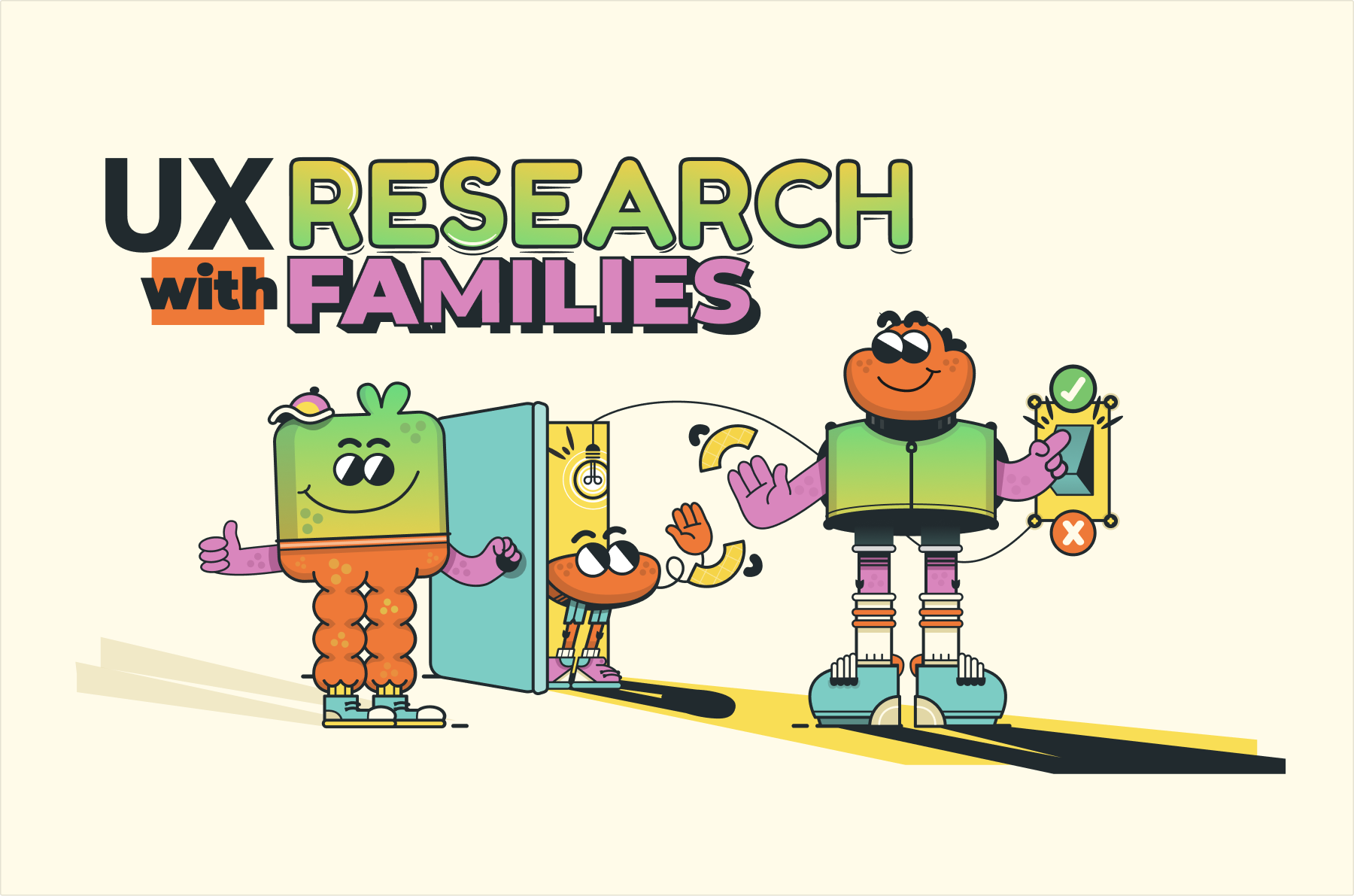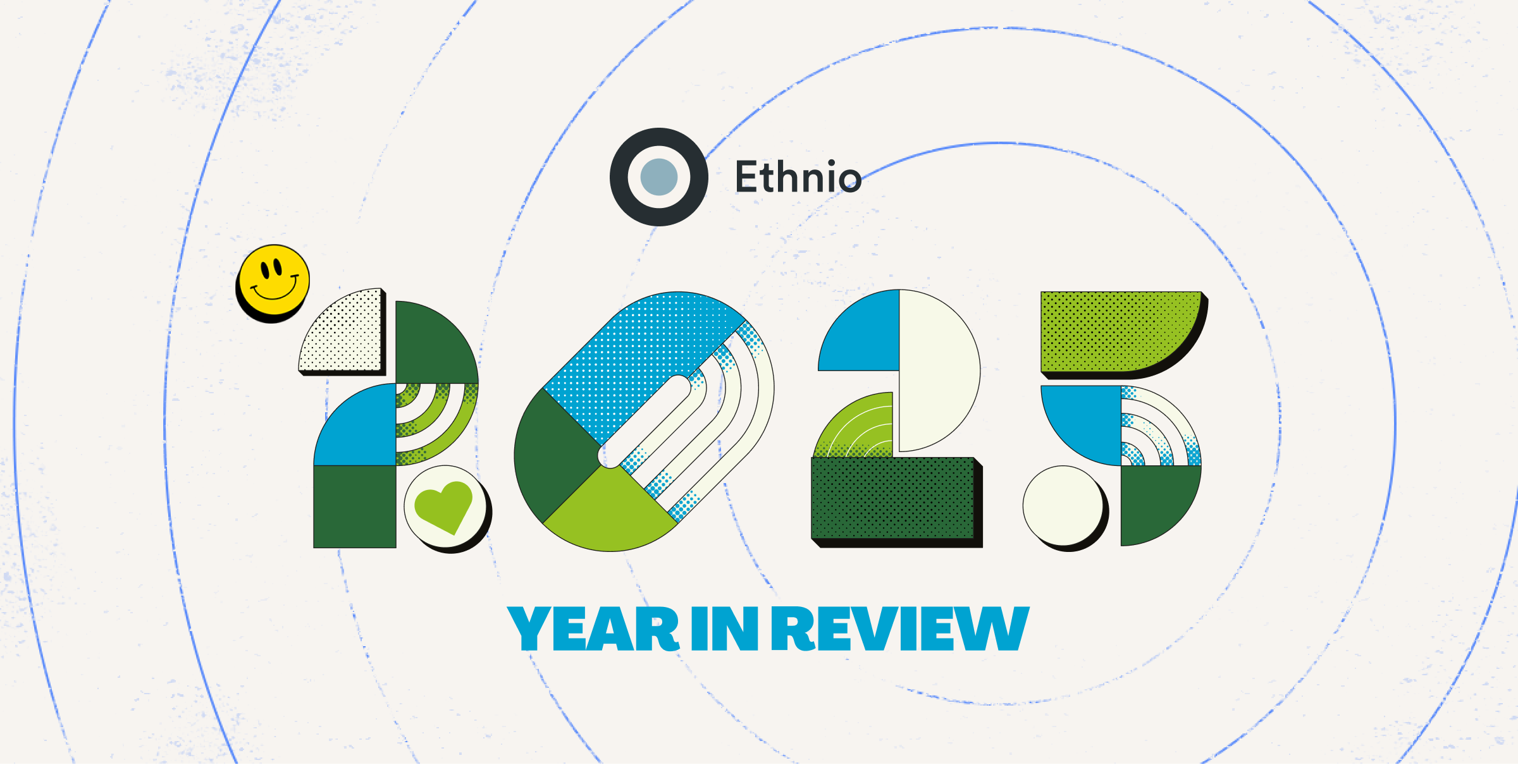Last year, the landscape of UX research was in flux.
Remember the theory that tech layoffs disproportionately impact UX research compared to other disciplines? 🥹That sparked concerns about the future of our field, and while the data wasn’t strong enough to support or debunk this theory, one clear takeaway from UX researchers and research ops teams is that the internal demand for research has never been higher within most product companies.
This paradox points to a significant trend: democratization.
By enabling non-researchers, or "People Who Do Research" (PWDRs), to participate in UX research, organizations can continue leveraging user insights even with limited resources. Whether seen as a positive shift or a cause for concern, democratization remains a hot topic in our field. Recent reports reveal 62% of researchers across 14 industries globally agree that their company now depends significantly on market research and insights.
To better understand this paradox's evolution, let’s review the key developments in UXR over the past year. Join us as we explore the significant impact of buzzword shaping the future of UX research.
What is democratizing UX research 🤔—And why is it important?
Democratizing UX research makes research (collecting, storing, sharing, and accessing) accessible and possible for anyone within an organization, regardless of their role. It aims to break down traditional barriers and hierarchies, allowing cross-functional teams to contribute to and benefit from user insights. The importance of democratizing UX research stems from its potential to transform how organizations approach user-centered design and decision-making.
Democratization has gained traction in research operations to address common challenges and optimize research efficiency. In the research process, democratization aims to promote collaboration, knowledge-sharing, and a more holistic understanding of users' needs by involving non-researchers, such as product managers, designers, developers, and marketers.
Impact of layoffs and the push for democratization
Layoffs: a sector-wide reassessment
The wave of layoffs across the tech industry has prompted a profound reassessment of research functions. Major players such as Tesla, Amazon, Google, TikTok, Snap, and Microsoft have been notably affected. This period of "reckoning" has had a particularly pronounced impact on larger, established companies.
It’s clear these reductions and the increasing demand for user-centric products has accelerated the adoption of democratization, empowering non-researchers ("citizen researchers") to engage in research activities.
Strategic impact of researchers
While AI and automation can support various tasks, human researchers remain crucial. Rest assured, "AI isn’t going to take your job," as the role of researchers goes beyond just conducting research. Their nuanced understanding and decision-making abilities are essential for organizations adapting to these changes.
Researchers serve as key strategic advisors, providing deep insights and guiding high-stakes decisions that impact the future.
The great democratization debate
Democratization faced scrutiny as some critics blamed it for devaluing research and contributing to industry layoffs. However, advocates of ResearchOps argue for a more nuanced view.
Kyle Soucy, in his article titled: The Problem With Research Democratization That People Aren't Talking About. Kyle points out that "Just because non-researchers (i.e., designers, developers, product managers, marketers, etc.) can learn to conduct research, it doesn't mean they want to." So, even when research teams embrace democratization, they have an uphill battle educating team members and stakeholders who aren't excited about the idea of more work.😤 While democratization offers opportunities to expand research reach, it also presents challenges in maintaining research quality and consistency.
In the year-and-change since, Behzod Sirjani is still arguably one of the strongest voices and advocates for democratization. Through Yet Another Studio, Behzod offers democratization training and resources. He's also given many talks and interviews.

I believe that research is a practice of rigorous curiosity, and the role of researchers in an organization is to help the people they work with make better decisions.Behzod argues that democratization is part of a UX researcher's job, and the UXRs should empower teams to gather and share data.
"We have to acknowledge that our role in helping our organizations learn and make better decisions means that we cannot be the ones with all the answers. Instead, we need to identify areas where our organizations need to learn in rigorous and structured ways and actively support that learning."
Erika Hall is another voice for democratization but emphasizes the importance of correctly framing the discussion and processes.
"Don't argue for or against democratization. That's a pernicious framing that tries to make a virtue of lazy thinking. Work towards true, goal-oriented, ethical collaboration with clear roles and responsibilities. Clarity enables efficiency." Erika Hall, Mule Design
In summary, while the push for democratization reflects a broader trend towards more inclusive and responsive research practices, it must be managed thoughtfully to ensure quality and effectiveness.
How UX research democratization works
If you’ve made it this far, it’s possible you’re asking how are we supposed to keep our research practices afloat, much less add value in the face of limited resources in 2024?
UX research democratization completely shifts the traditional research process, empowering a wider range of stakeholders to actively participate and contribute to user research activities.
It's essential to get everyone aligned on goals, questions, and decisions to start with. Only after you do that can you appropriately plan and delegate the work, and socialize the insights that come out of it.Here's a high-level overview of how democratizing UX research works:
Cultivating a user-centered culture ❤️ : Democratizing UX research begins with fostering a culture that values user insights and encourages collaboration across teams. Organizations must establish a shared understanding of the importance of user research and the benefits of involving diverse perspectives.
Educating and training non-researchers 👩🏫: To effectively democratize UX research, providing education and training opportunities to non-researchers is crucial. This training helps team members and stakeholders understand the research process, methodologies, and best practices, enabling them to contribute meaningfully and make informed decisions based on user insights.
Defining research roles and responsibilities 🧑💻: Clearly defining the roles and responsibilities of different team members involved in the research process is essential. Research experts are crucial in guiding and supporting non-researchers, ensuring that team members conduct research activities ethically and rigorously.
Collaborative research planning 👫: Democratizing UX research involves non-researchers in the research planning stage. UXRs conduct collaborative sessions to define research goals, select appropriate methodologies, and determine the scope and timeline of research activities.
Sharing research findings and insights 🗂️: Openly sharing research findings and insights across teams is critical to democratizing UX research. Regular communication channels, such as presentations, reports, and workshops, disseminate research findings and encourage discussion and knowledge-sharing among team members.
Iterative and inclusive decision-making ☺️: Democratizing UX research emphasizes the importance of diverse perspectives in the decision-making process. Research insights are considered alongside other factors, such as business goals, technical feasibility, and design considerations, to inform product decisions and prioritize future research initiatives.
Feedback and continuous improvement 🏋️♀️: Democratizing UX research relies on a feedback-driven approach. UXRs must establish regular feedback loops to gather input from all stakeholders involved in the research process, enabling continuous improvement and refinement of research practices.
The level of democratization can vary across organizations and projects. Some organizations may start with small-scale initiatives, gradually increasing involvement over time, while others may adopt a more comprehensive approach from the outset.
The key to democratization is to balance inclusivity and thorough research, leveraging teams' collective knowledge and expertise while upholding ethical standards and maintaining the quality of research insights.
Benefits of democratizing UX research
Democratizing UX research can benefit organizations and teams aiming to involve a broader range of stakeholders in the research process.
Increased access to research insights for cross-functional teams
Democratizing UX research allows cross-functional teams to access and leverage research insights directly. This access facilitates a shared understanding of user needs and challenges, enabling teams to make more informed decisions and design user-centric solutions.
Empowering non-researchers to contribute to the research process
Democratizing UX research empowers non-researchers, such as product managers or designers, to actively participate in research activities. This inclusion fosters a sense of ownership and responsibility for user research, encourages collaboration, and ensures UX teams consider diverse perspectives.
Accelerating research velocity and scalability
Democratizing UX research enables organizations to conduct research activities concurrently with a broader pool of contributors, reducing bottlenecks and accelerating the research process. This collaborative effort enables faster and more scalable research initiatives, gathering insights efficiently and iterating on designs with shorter feedback loops.
Cultivating a user-centric culture across the organization
Democratizing UX research promotes a user-centric culture by involving various stakeholders in the research process. This user-centered mindset cultivates empathy for users and a deeper understanding of their needs, leading to better products and services. It encourages collaboration, breaks down silos, and fosters a sense of shared responsibility for delivering exceptional user experiences.
Challenges of democratizing UX research 😰
Maintaining thorough research and quality
The danger of democratization is that people who are not properly upskilled go off and do research, gathering bad data and coming to inaccurate conclusions, i.e. they know just enough to be dangerous.Maintaining thorough research and quality in a democratized approach presents a challenge that requires active oversight to uphold research standards.
With multiple contributors involved, it is crucial to establish clear guidelines, standardize research practices, and conduct thorough quality checks to maintain the integrity and reliability of the research findings.
What do UX research tools have to do with democratization?
Balancing speed and agility with the risk of compromising research validity poses a challenge in democratized UX research. While democratization aims to expedite the research process, there is a potential trade-off between quick turnaround and maintaining research robustness. Striking the right balance involves:
Establishing streamlined workflows.
Leveraging efficient research tools.
Implementing rigorous validation processes to ensure the validity of insights.
Ensuring proper training and education for non-researchers
Ensuring non-researchers involved in the process receive proper training and education is essential to mitigate challenges in democratized UX research.
Equipping non-researchers with the knowledge and skills required to contribute effectively helps them understand research methodologies, interpret data, and follow best practices, enabling them to make valuable contributions.
How do research ops professionals in UXR address potential biases and misinterpretations?
Addressing potential biases and misinterpretations in data analysis and synthesis presents a critical challenge in democratized UX research. When multiple individuals are involved in data analysis and synthesis, there is a risk of personal biases and subjective interpretations influencing the outcomes.
To overcome this challenge, the Research Ops team must establish clear protocols, implement rigorous quality control measures, and foster a collaborative and open dialogue to ensure a more objective and accurate analysis.
Ethical considerations and data privacy
Research done by people who are not researchers is going to be worse than if a professional researcher did it; mistakes are guaranteed and can lead to confusion, bad decisions, and even legal problems.Ethical considerations and data privacy are critical in democratized UX research efforts. With increased access to user data and the involvement of multiple contributors, prioritizing ethical practices, obtaining informed consent, and protecting user privacy throughout the research process are essential.
Organizations must establish robust data governance frameworks, adhere to legal and ethical guidelines, and implement safeguards to maintain the confidentiality and anonymity of research participants' data.
Signs your organization might benefit from UX research democratization
Limited research capacity
According to an NN Group study, the average researcher-designer-developer ratio is 1:5:50—one researcher to 5 designers to 50 developers.

In a Medium piece for UX Collective, David Tang outlines why, "The reason that research teams are so thin is that one 'unit' of research tends to support, inform, and enable a broader swath of other work."
If the demand for user research outpaces the ability of dedicated UX researchers to provide it, this could be a sign that the company could benefit from democratizing UX research. This situation can arise in small teams or startups where there may be no dedicated UX researchers or in larger organizations where the UX team is stretched thin.
Lack of user-centric decision making
If your company makes decisions without adequate user input or designs products without proper user testing, democratizing UX research could be the solution. Involving more people in the research process ensures that user insights inform a higher proportion of decisions.
Need for cross-functional collaboration
One approach to democratization is essentially a structured form of cross-team collaboration, bringing stakeholders along for the research ride.If you aim to break down silos and encourage cross-functional collaboration in your company, democratizing UX research can help. Involving more people in user research creates more opportunities for teams to collaborate and share insights.
Interest in research from non-researchers
If people in non-research roles show interest in conducting user research, this could be a sign that the company could benefit from democratization. This interest could come from designers, developers, product managers, or other roles.
Need for rapid iteration and learning
If your company operates in a fast-paced environment that requires quick learning and iteration, democratizing UX research can be beneficial. Enabling more people to conduct research allows you to gather user insights more quickly and adapt products based on these insights.
What UXRs say about democratizing UX research
"I often hear from researchers this insecurity about democratization. 'Am I going to be replaced? By teaching other people this skill, am I still going to be valuable to the organization?' I think that's what we're really tiptoeing around. And I think it's worth taking a step back and asking, 'What are our unique skill sets that we bring to the organization—that we have had so much time and training on, and have developed thoughtfulness around?' One aspect of that is that we're really comfortable with ambiguity." Rannie Teodoro, Head of UX Design at Coupang (Seoul, Korea) via dscout.
"Most of us need a much more creative and holistic view on our roles as researchers. We're not just people who talk to customers or do surveys. We help people make better decisions. And there are infinite ways for you to do that in an organization, do the one that works best for you. And it's okay if that doesn't work for other people, because they're in different companies at different sizes, working on different things." Behzod Sirjani, Founder of Yet Another Studio (Seattle, United States) via dscout.
Key trends shaping the future
The Rise of ResearchOps
Increasingly central to the UX research landscape, streamlining research operations and ensuring that research activities are efficiently integrated into organizational workflows. As democratization expands the scope of research, ResearchOps is crucial for maintaining consistency, managing research resources, and facilitating cross-functional collaboration.
AI and Automation
AI and automation are transforming UX research by enabling more efficient data collection, analysis, and insight generation. Tools like Ethnio can automate repetitive tasks, provide advanced analytics, and uncover patterns that might be missed through manual analysis.
Focus on Impact
There is a growing emphasis on measuring the impact of UX research on business outcomes. Organizations are increasingly interested in understanding how research insights contribute to product success, customer satisfaction, and overall business performance.
Ethical Considerations
As UX research democratizes and involves a wider range of participants, ethical considerations ensure that research is conducted with respect for participants' privacy, obtaining informed consent, and maintaining high standards of data protection are essential. Orgs must establish robust ethical guidelines and training to safeguard the integrity of the research process.
In conclusion…
Reflecting on the past year, it’s evident that the democratization of UX research is transforming the field. Increased participation from non-researchers, new tools, and evolving industry demands present both opportunities and challenges.
Looking ahead, the future is bright, but success depends on a strategic approach. To harness the benefits of democratization while preserving research quality, organizations must strike a balance between inclusivity and rigor. Emphasizing a user-centered culture, investing in training, and upholding high standards will enable companies to use democratization effectively for better decision-making and more successful products.
Embracing democratization, investing in research infrastructure, and fostering a collaborative culture will help organizations unlock the full potential of user-centered design.








